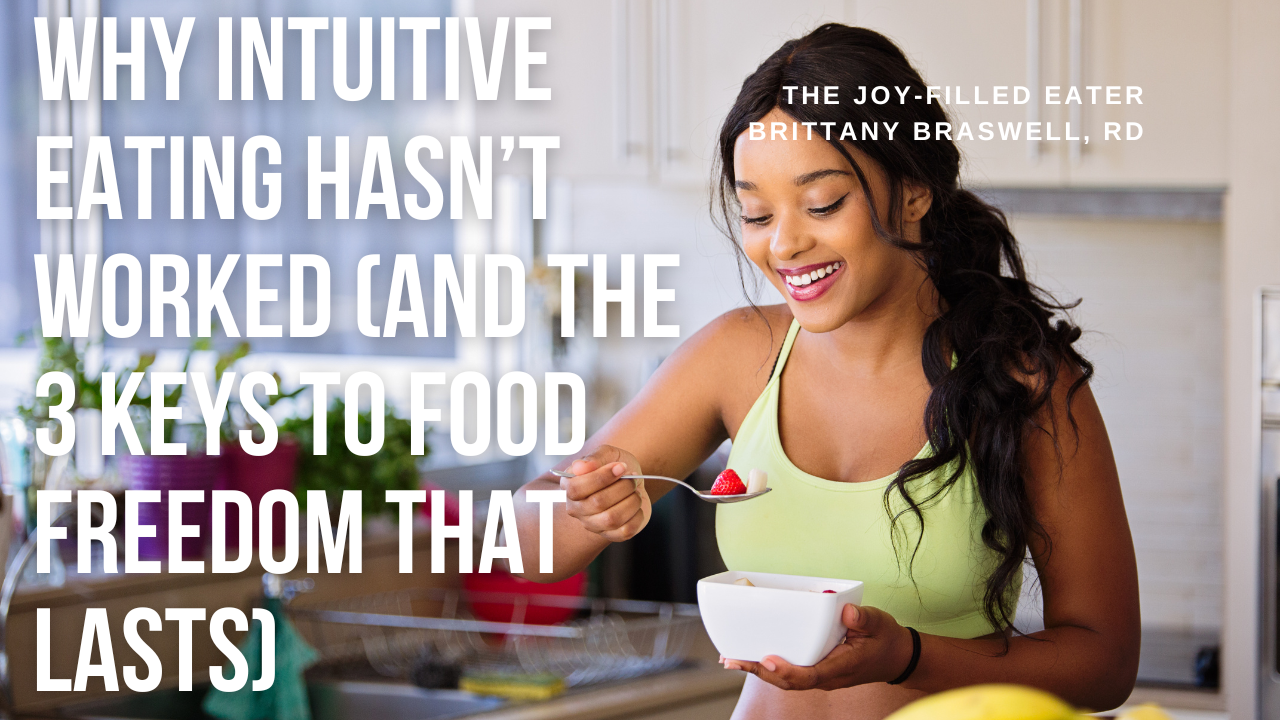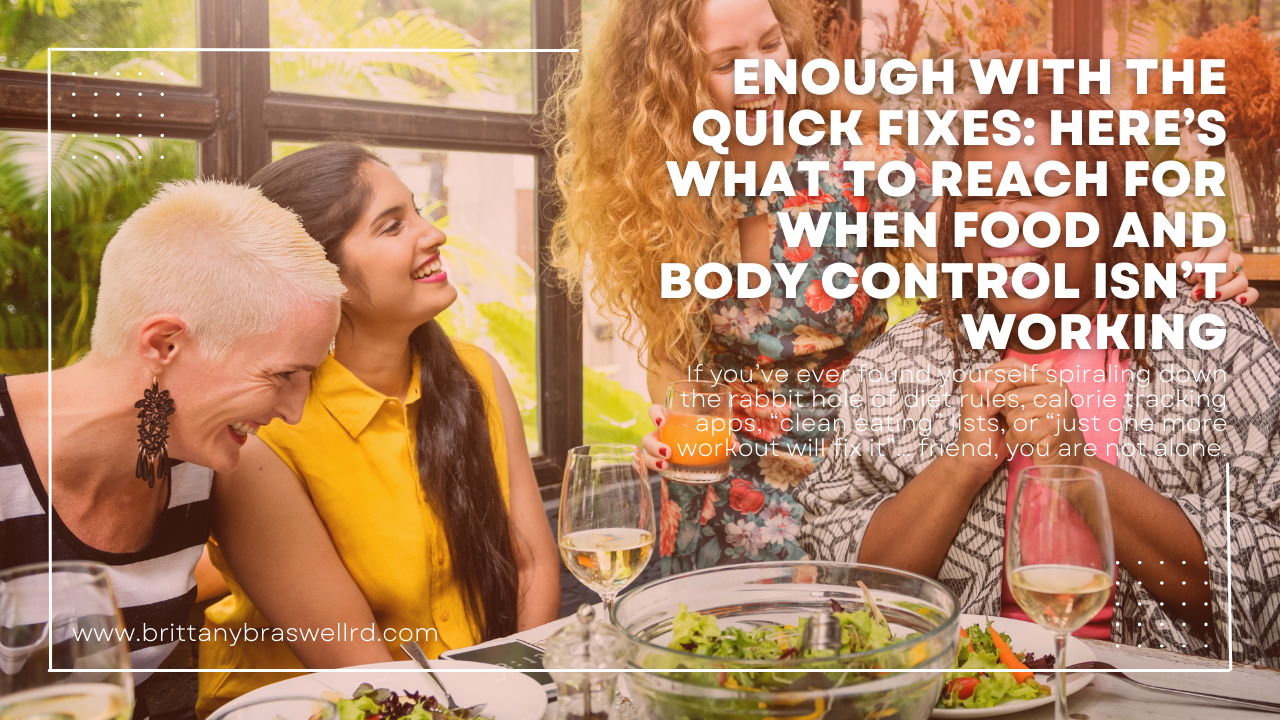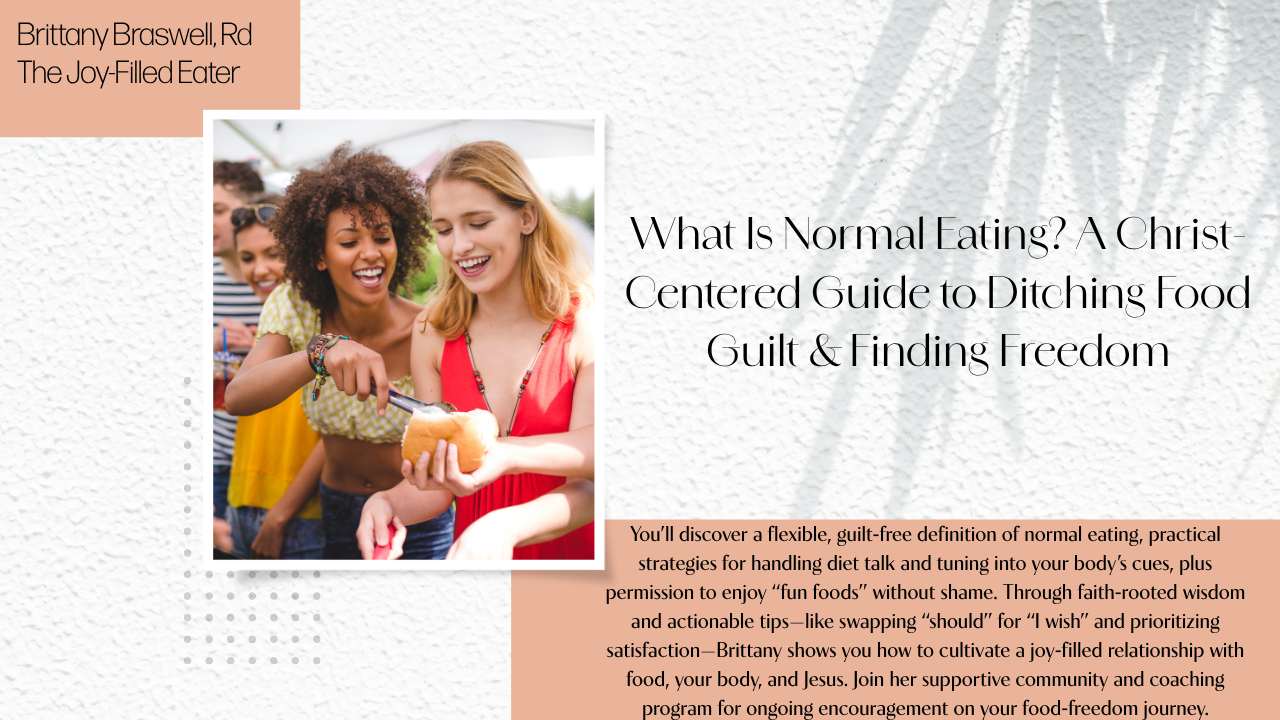Why Intuitive Eating Hasn’t Worked (and the 3 Keys to Food Freedom That Lasts)

Why Intuitive Eating Hasn’t Worked (and the 3 Keys to Food Freedom That Lasts)
Have you ever tried to assemble a piece of IKEA furniture without looking at the instructions? 🙋♀️ (Yep… guilty over here.) At first, it feels freeing. Like, “I’ve got this! I’ve done something similar before. No big deal.”
But then… you realize you’re missing a peg. The back panel is on upside down. And suddenly, what was supposed to be a cute bookshelf is wobbly, crooked, and one sneeze away from collapsing. Oy vey!
That’s exactly how so many women try to approach intuitive eating.
You hear about it. You’re intrigued. You decide to toss out all the diet rules and just “eat what sounds good.” But before long, things feel wobbly. You’re confused, frustrated, maybe even convinced something must be wrong with you.
Friend, hear me on this: If intuitive eating hasn’t worked for you, it’s not because you failed. It’s because you were missing pieces of the foundation.
And today, I want to walk you throug...
Enough with the Quick Fixes: Here’s What to Reach for When Food and Body Control Isn’t Working

Enough with the Quick Fixes: Here’s What to Reach for When Food and Body Control Isn’t Working
If you’ve ever found yourself spiraling down the rabbit hole of diet rules, calorie tracking apps, “clean eating” lists, or “just one more workout will fix it”… 🙋♀️ friend, you are not alone.
But can we just be honest for a second? Quick fixes don’t fix much of anything. Sure, they might feel like they’re working for a hot second. But eventually—whether it’s two weeks or two years down the road—you find yourself back in the same cycle of restriction, control, frustration, and wondering if food will ever not feel like the boss of you.
That’s why today we’re talking about what to actually reach for when food and body control isn’t working (because honestly, it never really does).
This message is rooted in a powerful lesson from Exodus about God’s daily provision of manna and water for the Israelites—a story that has so much to say about our tendency to chase control instead of trust. An...
Can I Really Trust My Hunger Cues? 3 Sneaky Lies Christian Women Believe About Hunger (and the Truth That Sets You Free)

Can I Really Trust My Hunger Cues?
3 Sneaky Lies Christian Women Believe About Hunger (and the Truth That Sets You Free)
Ever found yourself hovering in front of the pantry at 9:30 p.m. asking: “Am I actually hungry, or just bored? Emotional? Broken?”
If you’ve ever questioned your body’s hunger cues—or even thought, “If I listened to my hunger, I’d totally lose control and eat ALL the things”—we get that around here.
For Christian women navigating a disordered or anxious relationship with food, this kind of confusion isn’t just common... it’s practically expected in a culture that glorifies diets and demonizes carbs.
But here’s the truth bomb I want to lovingly drop in your lap today:
Your hunger cues are not broken.
Your body is not the enemy.
You can learn to trust your God-designed hunger again.
So, let’s talk about it. In this post (based on a recent episode of the Faith-Filled Food Freedom podcast), we’re going to unpack:
- Why hunger feels so confusing after years of...
What Is Normal Eating? A Christ-Centered Guide to Ditching Food Guilt & Finding Freedom

What Is Normal Eating? A Christ-Centered Guide to Ditching Food Guilt & Finding Freedom
Ever feel like everyone else got the secret playbook for how to “just eat” without spiraling—and yours got lost in the mail? 😅 Maybe you’ve stared down a barbecue plate, praying for the willpower to “be good,” while secretly wondering why this feels so hard. If you’ve ever wished you could just be a normal eater, you are so not alone—and girl, I’ve got good news.
Normal eating isn’t some elusive thing reserved for Instagram influencers and nutrition nerds. It’s for you too. Yes, even if you’ve struggled with food guilt, body image obsession, or that all-or-nothing mindset for years. In this post, we're gonna break down what normal eating really is, how diet culture has distorted it, and how you can start taking steps toward freedom—starting today. 💃
Let’s dive in.
What Does "Normal Eating" Even Mean?
Spoiler alert: It doesn’t mean salads and sparkling water every meal. And it definitely does...
Can the Desire to Lose Weight AND Pursue Food Freedom Coexist?

Can the Desire to Lose Weight AND Pursue Food Freedom Coexist?
“I want food freedom… but I also kinda want to lose weight. Is that wrong?”
Oh friend, if I had a dollar for every time a Christian woman whispered this question with a cocktail of guilt, shame, and curiosity—I’d be writing this blog from a beach house in Maui. 🏖️
But in all seriousness, if you’ve been wrestling with this exact thought, I want you to hear me loud and clear:
You are NOT disqualified from pursuing food freedom just because part of you still wants weight loss.
Let’s break this tension down together—with grace, truth, and the guidance of the Holy Spirit (not the scale).
The Honest Truth: You’re Not Alone in This Tension
First, a big ol’ exhale. You’re not the only Christian woman who feels this way. This desire to “want both” is extremely common—especially if you’ve grown up in a performance-based or image-focused environment.
“Brittany, I don’t want to obsess over food anymore... but also, I’d love...




